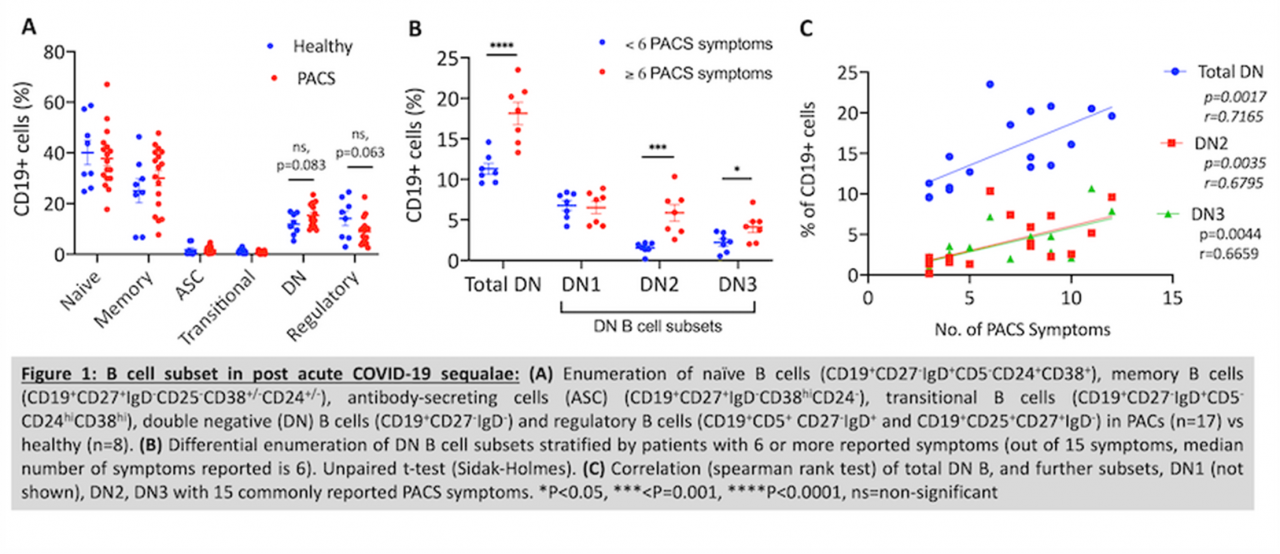Abstract
Background: CD19+CD27-IgD- Double Negative (DN) B cells identified in severe acute-COVID (PMID: 33028979) may underlie the autoimmune responses in post-acute COVID-19 sequalae (PACS) (PMID: 36137590).
Aims: We aimed to investigate the B cell profile in well-characterised PACS patients and their associated symptoms.
Methods: Circulating B cells were immunophenotyped by flow cytometry from 17 PCR+ PACS patients (WHO guidelines, ≥18 years, no history of autoimmune disease) and 8 healthy controls (HC) (NCT:05459506).
Results: Out of 17 PACS (mean age 41, 13 females, median length post-recovery 11.3 months) commonly reported symptoms were fatigue (65%), joint pain and myalgia (63%), dyspnea (59%) and dry cough (35%). No difference was seen in the B cell-subsets between PACS and HC except for an increased trend in DN B cells (Fig1A). DN B cells were increased in patients with ≥6 reported symptoms (Fig1B). Further characterized, DN2 (CD11c+CD21-) and DN3 (CD11c-CD21-) cells (reported in autoimmune diseases and severe acute COVID-19 respectively), were positively associated with increased PACS symptoms (Fig1C). Three patients with high DN B cells developed autoimmune disease (vitiligo, lupus, and postural orthostatic tachycardia syndrome).
Conclusion: DN B cells are elevated in PACS patients, specifically those experiencing persistent joint pain, myalgia, and fatigue and may direct rheumatological trajectories post-COVID.
